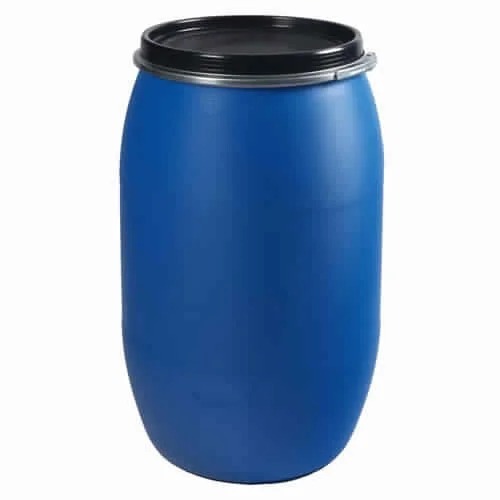Product Details
Ferrous Sulphate 200Ltr Drum
Ferrous sulphate, a chemical compound also known as iron(II) sulphate or green vitriol, holds a significant place in various industries due to its diverse applications and numerous benefits. Renowned for its role in agriculture, water treatment, pharmaceuticals, and industrial processes, ferrous sulphate plays a pivotal role in enhancing plant growth, treating water, and addressing iron deficiency disorders. Let’s delve into the intricacies of ferrous sulphate, exploring its benefits and the myriad ways it contributes to different sectors.
Description
Ferrous Sulphate: Exploring its Benefits and Versatile Applications
Ferrous sulphate, a chemical compound also known as iron(II) sulphate or green vitriol, holds a significant place in various industries due to its diverse applications and numerous benefits. Renowned for its role in agriculture, water treatment, pharmaceuticals, and industrial processes, ferrous sulphate plays a pivotal role in enhancing plant growth, treating water, and addressing iron deficiency disorders. Let’s delve into the intricacies of ferrous sulphate, exploring its benefits and the myriad ways it contributes to different sectors.
Chemical Composition and Properties:
Ferrous sulphate (FeSO₄) is an inorganic salt composed of iron(II) cations (Fe²⁺) and sulphate anions (SO₄²⁻). It exists in several hydrated forms, including ferrous sulphate heptahydrate (FeSO₄·7H₂O) and ferrous sulphate monohydrate (FeSO₄·H₂O). Ferrous sulphate appears as a greenish crystalline solid or powder with high solubility in water. It is mildly acidic in nature and readily oxidizes to form ferric compounds upon exposure to air.
Applications and Benefits:
- Agriculture and Soil Amendment: Ferrous sulphate serves as a vital soil amendment and micronutrient fertilizer in agriculture, particularly for crops suffering from iron deficiency chlorosis. It helps correct iron deficiencies in alkaline and calcareous soils, enhancing chlorophyll synthesis, photosynthesis, and plant growth. Ferrous sulphate application promotes greening, leaf expansion, and yield improvement in a wide range of crops, including fruits, vegetables, ornamentals, and field crops.
- Water Treatment and Remediation: In water treatment applications, ferrous sulphate is utilized as a coagulant and flocculant for the removal of suspended solids, organic matter, and contaminants from raw water sources. It aids in the precipitation and sedimentation of impurities, facilitating their removal through filtration and settling processes. Ferrous sulphate-based water treatment systems improve water clarity, turbidity reduction, and microbial control, ensuring safe and potable drinking water.
- Pharmaceutical Formulations: Ferrous sulphate finds applications in pharmaceutical formulations as a source of iron supplementation for the treatment of iron deficiency anemia. It serves as a ferrous iron source in oral iron supplements and medications, providing essential iron ions for hemoglobin synthesis and red blood cell production. Ferrous sulphate supplements help alleviate symptoms of fatigue, weakness, and pallor associated with iron deficiency disorders.
- Industrial Processes and Chemical Synthesis: Ferrous sulphate is utilized in various industrial processes and chemical synthesis reactions as a reducing agent, catalyst, and precursor for the production of other iron compounds. It finds applications in wastewater treatment, metal surface treatment, and pigment manufacturing. Ferrous sulphate is also employed in the synthesis of iron oxide pigments, ink formulations, and as a component in cementitious materials and construction products.
- Aquaculture and Pond Management: In aquaculture and pond management, ferrous sulphate is used to control algae growth, improve water quality, and enhance fish health and productivity. It helps inhibit the growth of nuisance algae species such as filamentous and planktonic algae by limiting their access to essential nutrients and light. Ferrous sulphate application promotes algae flocculation, sedimentation, and decomposition, reducing algae blooms and improving oxygen levels in aquatic ecosystems.
- Textile Dyeing and Tanning Processes: Ferrous sulphate serves as a mordant and color fixative in textile dyeing and leather tanning processes. It helps enhance dye uptake, color fastness, and shade consistency in natural and synthetic textile fibers. Ferrous sulphate-based mordants facilitate the binding of dyes to textile substrates, ensuring vibrant and durable coloration. In leather tanning, ferrous sulphate aids in the stabilization of collagen fibers and the formation of tannin-iron complexes, leading to improved leather quality and durability.
Conclusion:
In conclusion, ferrous sulphate emerges as a versatile and indispensable chemical compound with a multitude of applications and benefits across diverse industries. From its role in agriculture and water treatment to its contributions in pharmaceuticals, industrial processes, and aquaculture, ferrous sulphate plays a vital role in enhancing plant growth, water quality, and human health. As industries continue to innovate and address evolving challenges, the importance of ferrous sulphate in optimizing processes and promoting sustainability is expected to grow, further solidifying its status as a valuable and essential chemical compound in modern-day applications.





Reviews
There are no reviews yet.